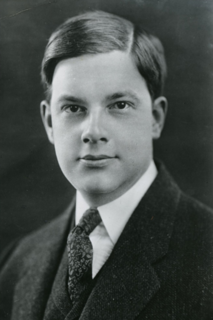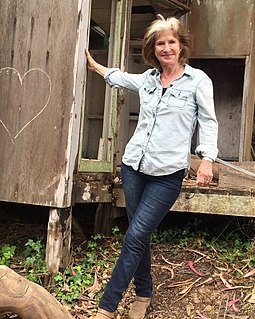Related Research Articles

John Donne was an English poet, scholar, soldier and secretary born into a recusant family, who later became a cleric in the Church of England. Under royal patronage, he was made Dean of St Paul's Cathedral in London (1621–1631). He is considered the preeminent representative of the metaphysical poets. His poetical works are noted for their metaphorical and sensual style and include sonnets, love poems, religious poems, Latin translations, epigrams, elegies, songs, and satires. He is also known for his sermons.

Phillis Wheatley Peters, also spelled Phyllis and Wheatly was an American author who was the first African-American author of a published book of poetry. Born in West Africa, she was sold into slavery at the age of seven or eight and transported to North America, where she was bought by the Wheatley family of Boston. After she learned to read and write, they encouraged her poetry when they saw her talent.

Alfred Joyce Kilmer was an American writer and poet mainly remembered for a short poem titled "Trees" (1913), which was published in the collection Trees and Other Poems in 1914. Though a prolific poet whose works celebrated the common beauty of the natural world as well as his Roman Catholic religious faith, Kilmer was also a journalist, literary critic, lecturer, and editor. At the time of his deployment to Europe during World War I, Kilmer was considered the leading American Roman Catholic poet and lecturer of his generation, whom critics often compared to British contemporaries G. K. Chesterton (1874–1936) and Hilaire Belloc (1870–1953). He enlisted in the New York National Guard and was deployed to France with the 69th Infantry Regiment in 1917. He was killed by a sniper's bullet at the Second Battle of the Marne in 1918 at the age of 31. He was married to Aline Murray, also an accomplished poet and author, with whom he had five children.

John Clare was an English poet. The son of a farm labourer, he became known for his celebrations of the English countryside and sorrows at its disruption. His work underwent major re-evaluation in the late 20th century; he is now often seen as a major 19th-century poet. His biographer Jonathan Bate called Clare "the greatest labouring-class poet that England has ever produced. No one has ever written more powerfully of nature, of a rural childhood, and of the alienated and unstable self."

Michael Bruce was a Scottish poet and hymnist.

David Humphreys was an American Revolutionary War colonel and aide de camp to George Washington, a secretary and intelligence agent for Benjamin Franklin in Paris, American minister to Portugal and then to Spain, entrepreneur who brought Merino sheep to America and member of the Connecticut state legislature. A poet and author, he was one of the "Hartford Wits."

During the American Revolutionary War (1775–1783), management and treatment of prisoners of war (POWs) were very different from the standards of modern warfare. Modern standards, as outlined in the Geneva Conventions of later centuries, assume that captives will be held and cared for by their captors. One primary difference in the 18th century was that care and supplies for captives were expected to be provided by their own combatants or private resources.

Ernesto Cardenal Martínez was a Nicaraguan Catholic priest, poet, and politician. He was a liberation theologian and the founder of the primitivist art community in the Solentiname Islands, where he lived for more than ten years (1965–1977). A former member of the Nicaraguan Sandinistas, he was Nicaragua's minister of culture from 1979 to 1987. He was prohibited from administering the sacraments in 1984 by Pope John Paul II, but rehabilitated by Pope Francis in 2019.

Philip Morin Freneau was an American poet, nationalist, polemicist, sea captain and newspaper editor sometimes called the "Poet of the American Revolution". Through his newspaper, the National Gazette, he was a strong critic of George Washington and a proponent of Jeffersonian policies.

John Page was a figure in early United States history. He served in the U.S. Congress and as the 13th Governor of Virginia.

Carolyn D. Wright was an American poet. She was a MacArthur Fellow, a Guggenheim Fellow, and the Poet Laureate of Rhode Island.

Marilyn Jean Buck was an American Marxist revolutionary and feminist poet who was imprisoned for her participation in the 1979 prison escape of Assata Shakur, the 1981 Brink's robbery and the 1983 U.S. Senate bombing. Buck received an 80-year sentence, which she served in federal prison, from where she published numerous articles and other texts. She was released on July 15, 2010, less than a month before her death at age 62 from cancer.
Louis Aston Marantz Simpson was an American poet born in Jamaica. He won the 1964 Pulitzer Prize for Poetry for his work At the End of the Open Road.

Jacob Bailey was an author and clergyman of the Church of England, active in New England and Nova Scotia.
Nationality words link to articles with information on the nation's poetry or literature.
Nationality words link to articles with information on the nation's poetry or literature.
Nationality words link to articles with information on the nation's poetry or literature.

"Paul Revere's Ride" is an 1860 poem by American poet Henry Wadsworth Longfellow that commemorates the actions of American patriot Paul Revere on April 18, 1775, although with significant inaccuracies. It was first published in the January 1861 issue of The Atlantic Monthly. It was later retitled "The Landlord's Tale" in Longfellow's 1863 collection Tales of a Wayside Inn.
Matthew Mead was a Lieutenant Colonel who served on George Washington's staff in the American Revolutionary War. He was a member of the Connecticut House of Representatives from Norwalk in the sessions of May 1779, May and October 1780, May and October 1781.
Daniel Haberman (1933–1991) was an American poet, translator and graphic designer. Haberman was instrumental in founding the American Poets' Corner at the Cathedral of St. John the Divine in New York City and was the Cathedral's first Poet-in-Residence, from 1983 to 1986. In 1988 he and his wife, pianist Barbara Nissman, moved from New York to a farm in the Allegheny Mountains of West Virginia, where he lived until his death.
References
- ↑ "Taxation of America, 1765" . Retrieved 14 August 2012.
- ↑ "Music and Poetry of the American Revolution" . Retrieved 14 August 2012.
- ↑ "Guide Book To New England Travel: New York To New Haven Guidebook, Originally Published 1919".
- ↑ "Descent on Middlesex, 1781" . Retrieved 14 August 2012.